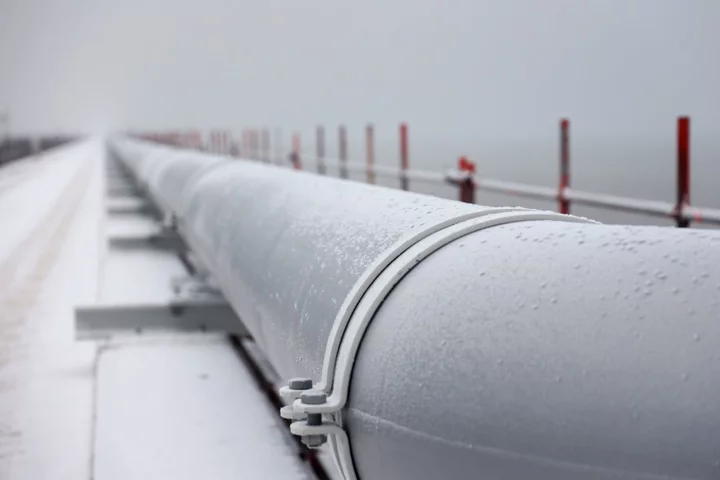European Union nations must strengthen measures to reduce gas and electricity demand to speed the green-energy transition, according to two non-profit groups.
While the EU managed to drastically reduce its reliance on Russian fossil fuels last winter, it was rescued in part by mild weather and higher prices that deterred consumption, the European Environmental Bureau said. The bloc needs a task-force to monitor energy-saving measures and communicate to citizens what needs to be done.
“High prices are not a policy,” Davide Sabbadin, deputy policy manager for climate and energy at the EEB, told reporters in a briefing. “What we lack is an ample dissemination of the energy saving status and measures through coordinating media across the European Union.”
While Europe’s crisis has eased — with gas prices near a two year-low and inventories well above the historic average — governments need to take stock and find ways to accelerate the energy transition, according to the EEB. In a separate report focusing on central and eastern Europe, Greenpeace called for policy makers to focus on retrofitting buildings to make them more energy-efficient rather than investing in new fossil fuel projects.
“There’s an opportunity to reduce the demand for energy in the long term and this is really crucial to protect people from energy poverty, for our energy security, but also for our climate goals,” Lorelei Limousin, senior climate and energy campaigner at Greenpeace’s European unit, said during the briefing.
While EU countries met voluntary targets to reduce gas consumption by 15% between August 2022 and March this year, the EEB said they missed goals to cut electricity demand by at least 10% and to curb peak consumption by 5%. That’s hindering energy transformation efforts, it said.
The European Commission expects member countries to reach a gas storage level of 90% by November, if consumption remains 15% lower until the end of October. The EEB said those measures must continue through March next year to ensure gas reserves for the following winter and avoid price volatility that would hurt consumers.

